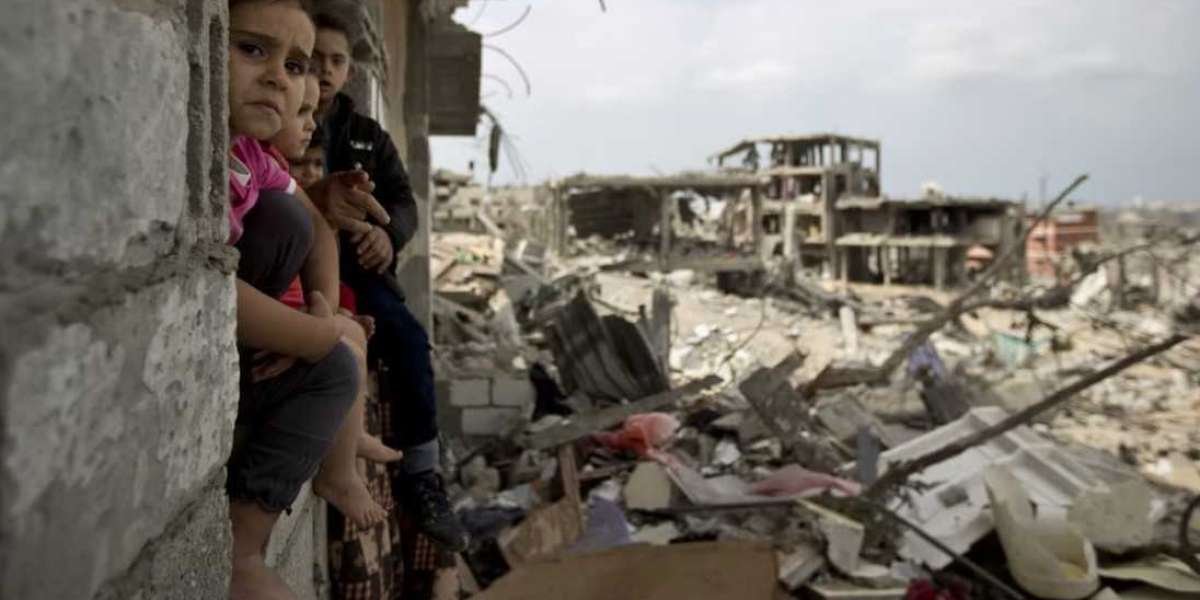The ongoing humanitarian crisis in Gaza is a stark reminder of the region's struggles with conflict, economic hardship, and resource scarcity. The people of Gaza face a daily battle for survival, as they endure shortages of basic necessities like clean water, food, healthcare, and shelter. Any meaningful help must address both immediate needs and long-term solutions to ensure sustainable improvement in the quality of life for Gaza’s residents.
Financial Support for Relief Efforts
One of the most impactful ways to assist Gaza is by providing financial support. Humanitarian organizations operating in the region rely heavily on donations to carry out their work. These funds are used to deliver food, clean water, medical supplies, and emergency aid to those who need it most. Financial contributions also help rebuild critical infrastructure such as schools, hospitals, and housing, which are often destroyed during conflicts. Donations to reputable organizations ensure that resources are allocated efficiently and effectively to address the needs of Gaza’s vulnerable population.
Improving Healthcare Access
Gaza’s healthcare system is on the brink of collapse, with limited resources, overcrowded hospitals, and a chronic shortage of medical supplies. Supporting healthcare initiatives in Gaza is a crucial step in improving the well-being of its residents. Donations to medical aid organizations enable the delivery of essential supplies such as surgical equipment, medications, and life-saving treatments. Additionally, mobile clinics provide critical services to remote and underserved communities, ensuring that even the most vulnerable have access to care. Addressing healthcare needs is not only a humanitarian necessity but also a means to prevent long-term health crises in the region.
Addressing Food Insecurity
Hunger is a pressing issue in Gaza, where many families rely on humanitarian assistance to meet their daily nutritional needs. Food insecurity stems from the region’s economic challenges, restricted access to agricultural resources, and limited opportunities for trade. Providing food aid is one of the most direct ways to alleviate suffering. Food baskets containing staples such as rice, flour, and cooking oil can sustain families, while initiatives to support local farming can create long-term solutions for food production. School feeding programs are also essential, as they provide children with much-needed nourishment and encourage school attendance.
Advocating for Lasting Policy Changes
While immediate relief efforts are critical, addressing the root causes of Gaza’s challenges requires long-term policy changes. Advocacy plays a vital role in bringing attention to the issues facing Gaza’s residents. Raising awareness through social media campaigns, community events, and public discussions can help mobilize global support. Pressuring governments and international organizations to lift blockades, promote free trade, and support peace negotiations is equally important. Sustainable change can only occur when the international community commits to addressing the systemic issues that perpetuate suffering in Gaza.
Volunteering Time and Expertise
Volunteering is another meaningful way to support Gaza’s residents. Whether by working directly in the region or contributing remotely, volunteers can provide valuable skills and services that make a difference. Educational initiatives can help address the disruption in schooling caused by conflict, providing children with opportunities to learn and grow. Volunteers with medical training can assist in delivering healthcare, while those with expertise in construction can contribute to rebuilding efforts. Volunteering not only delivers immediate aid but also fosters a sense of solidarity and hope for the people of Gaza.
Promoting Education for the Future
Education is a powerful tool for breaking the cycle of poverty and conflict. However, many children in Gaza face significant barriers to accessing quality education. Supporting educational programs is crucial to empowering the younger generation and equipping them with the skills needed to build a better future. Contributions to scholarship funds, teacher training programs, and the provision of learning materials can make a significant impact. Rebuilding schools destroyed by conflict ensures that children have safe spaces to learn, fostering an environment of growth and resilience.
Providing Mental Health Support
The psychological toll of living in a conflict zone cannot be overstated. The trauma experienced by Gaza’s residents, especially children, has long-term implications for their mental well-being. Addressing mental health needs is an essential component of humanitarian aid. Programs offering counseling, therapy, and stress management workshops can help individuals cope with their experiences and begin to heal. Training local mental health professionals ensures that these services remain accessible and sustainable over time.
Investing in Economic Empowerment
Economic empowerment offers a sustainable pathway to improving the lives of Gaza’s residents. Job creation, vocational training, and support for local businesses provide individuals with the means to support themselves and their families. Microloans can help entrepreneurs launch small businesses, while investments in sectors such as technology and agriculture can stimulate economic growth. Encouraging international trade can also open up markets for Gaza-made products, creating opportunities for economic self-reliance.
Collaborating with Faith-Based Organizations
Faith-based organizations often play a significant role in humanitarian efforts, delivering aid with compassion and addressing both physical and spiritual needs. Supporting these organizations can amplify the impact of relief efforts. Mosques, churches, and other religious institutions frequently organize initiatives to provide food, shelter, and medical care. Engaging with these groups can help expand the reach of assistance and foster a sense of community solidarity.
A Call to Action
Helping Gaza is a collective responsibility that transcends borders, cultures, and beliefs. The challenges faced by its residents are immense, but they are not insurmountable. By taking action—whether through donations, volunteering, advocacy, or support for economic empowerment—we can contribute to meaningful change. Each effort, no matter how small, has the potential to make a difference in the lives of Gaza’s people. Together, we can work towards a future where peace and prosperity replace hardship and conflict.













